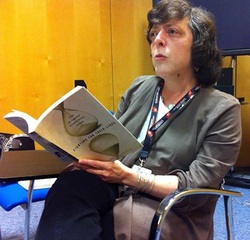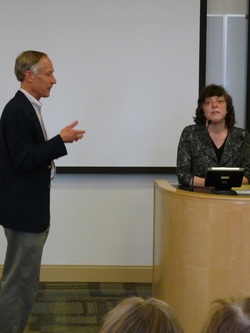This review in Book News, which covers scholarly and reference books. I especially appreciate that this review says Fighting for Their Lives has a "readable style," as that's something I value highly.
Article in the Swarthmore Daily Gazette about the reading and talk I gave at the Lang Center for Civic and Social Responsibility last month. The group of students and faculty who attended this talk asked thoughtful questions and were a pleasure to speak with -- and these were people who chose to spend a beautiful Friday afternoon indoors listening to talk of difficult subjects -- my kind of people!


 RSS Feed
RSS Feed
